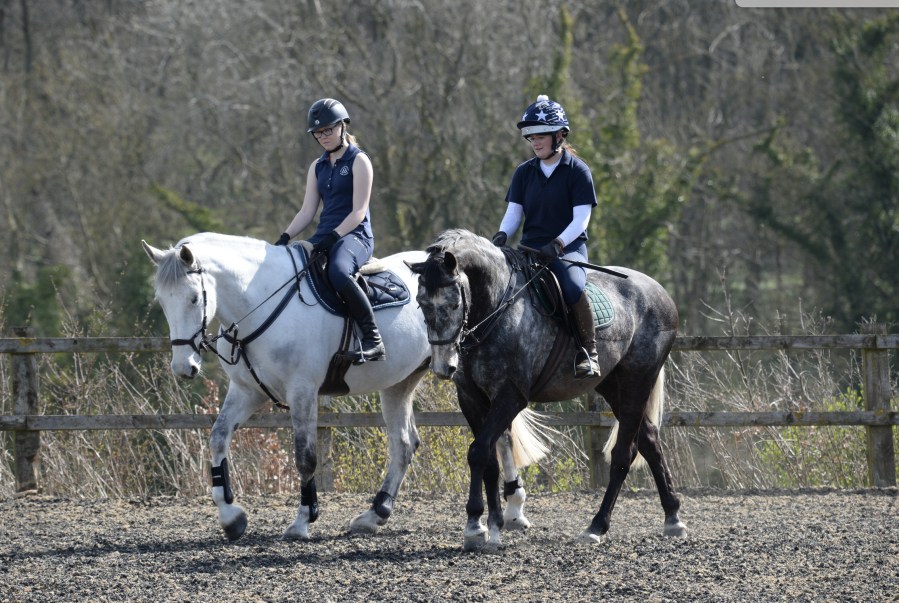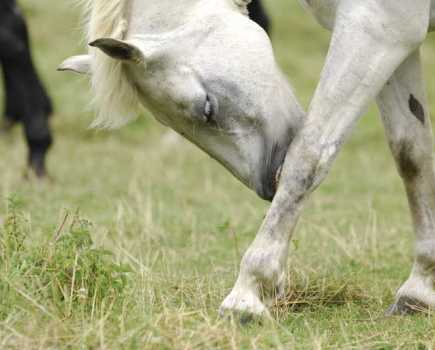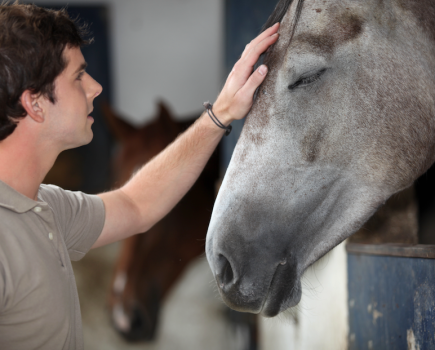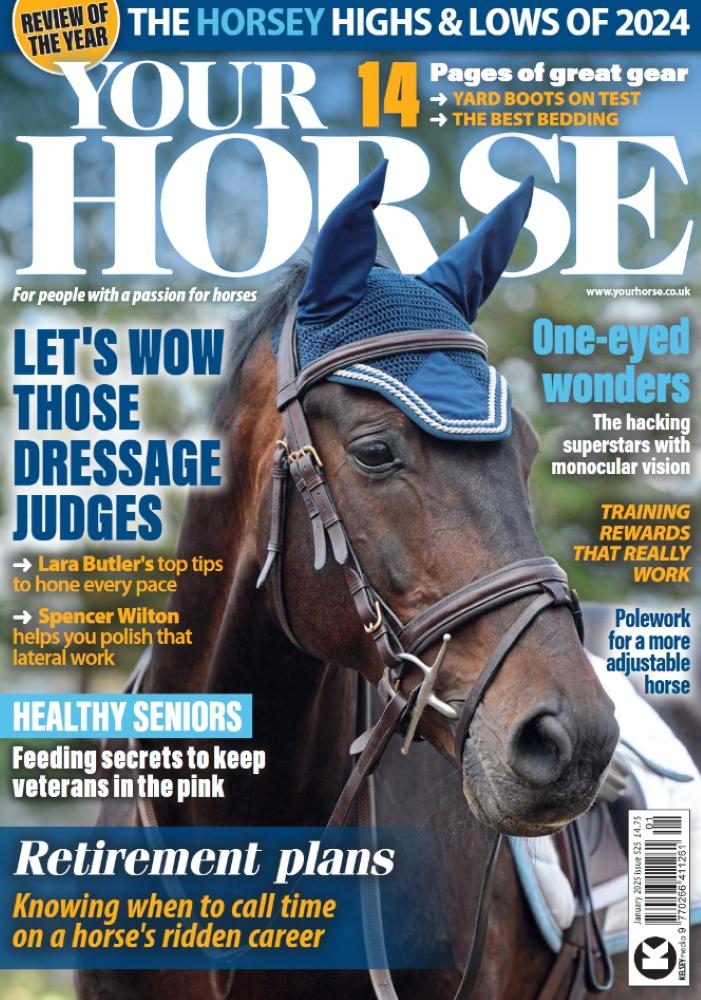As with humans who are shy, some horses aren’t very confident around other horses and can panic in situations where they feel trapped or overwhelmed by the closeness of other horses. This might be in the field, hacking out in a group, in the warm-up area at a competition or at home in the school — anywhere your horse comes in close proximity with others.
Your horse might kick out, or squeal, freeze on the spot or try to turn and run away. Whatever his or her reaction, it’s a sign that he is scared, daunted and/or overwhelmed by the situation.
So, why does this happen?
“Working in close proximity to other horses can be difficult for many horses, whether that’s sharing an arena at home, or staying calm, confident and focused in a warm-up arena,” says behaviourist Hannah Weston of Connection Training.
Hannah explains that horses can become shy for several reasons:
- Young or green horses are often wary when first taken into spaces with other horses being worked or ridden. Naturally, horses display certain behaviours when meeting new horses as they get to know each other. In a working environment, we don’t allow for this, so green horses often don’t know how to react towards the other horses, leading them to get excited or anxious.
- Horses who have had insufficient socialisation, such as those who have been kept on their own for a long time, will often be wary around strange horses. Similarly, horses who have been kept in a stressful herd environment — such as when there is resource guarding over limited hay piles — will often develop anxiety about being around other horses.
- If a horse suffers an accident or incident in a certain situation, this can cause them to be fearful in that situation in future. For example, if one horse bolts into another in a warm-up arena, it can cause fearful associations with other horses in arenas.
“In all of these situations, horses will show their fear through behaviour such as reluctance to enter an arena, shying away from other horses, ear pinning or threatening to kick if other horses come too close, and more extreme behaviour such as rearing or bolting,” says Hannah.
How to overcome shyness
To help horses overcome their fear and learn to be relaxed and confident around others, Hannah stresses that it is important to go back to basics and build up positive associations.
“This approach combines using rewards to increase motivation and positivity, along with breaking down the exercise into small, manageable steps and building your horse’s confidence through a strong training foundation,” she advises.
Hannah’s nine training steps:
- Take your horse into an empty arena and get connected and settled through walking circles, patterns, transitions and exploring the space together. You can do this ridden or from the ground.
- Enlist the help of a friend to bring their horse into the arena at a distance at which your horse is still able to stay calm — this might be the full distance of the arena, or even outside the gate to start with.
- Reward your horse through scratches or treats when he stays relaxed and tunes into you, giving you his focus and responding well to your cues and aids. To start with, it’s best if the other horse is held still and you can walk your horse in small patterns at the far end of the arena.
- You may find that your horse is showing a bit more tension or distraction. If so, just stay calm and guide him through some basic exercises, and he will eventually settle and relax. Take as much time as you need and repeat as necessary. Don’t move on until your horse is totally relaxed at each stage.
- Once your horse is relaxed and able to ignore the other horse at that distance, begin to walk your horse closer. Use sweeping circles and serpentines rather than a direct approach, going a little closer and then walking away again.
- Look for signs of tension in your horse, such as focusing on the other individual rather than on you, reluctance to go closer, pinning their ears and rushing away from the other horse. These show that this is the very edge of what your horse can cope with, so back off a little until he or she is more relaxed. Again, reward your horse for any moments of relaxation and responsiveness to your aids. Gradually, you’ll be able to circle closer to and around the other horse while your horse stays calm and connected to you.
- Next, ask your friend to start walking their horse around the arena. Be mindful of the distance at which your horse becomes fearful and don’t go any closer than that. Quietly walk both horses around the space, again circling closer and away, following at a distance and so on. As your horse grows in confidence, you will be able to approach more directly and pass each other at a closer distance without your horse reacting fearfully.
- From here, you can repeat this exercise in more challenging ways, such as introducing trot and canter, repeating with a different horse, then with two horses in the arena and so on. Set your horse up for success by working with people who understand your approach and will keep their horses to the safe distance as necessary.
- If your horse does get a fright again, you will have to go back a few steps to rebuild their confidence, so take it slowly to establish a really strong confident foundation.
“This process will teach your horse that there is nothing to fear about working with you in an arena with other horses,” says Hannah. “It will build his trust and focus in you, and enable you to work calmly together in these situations.”









